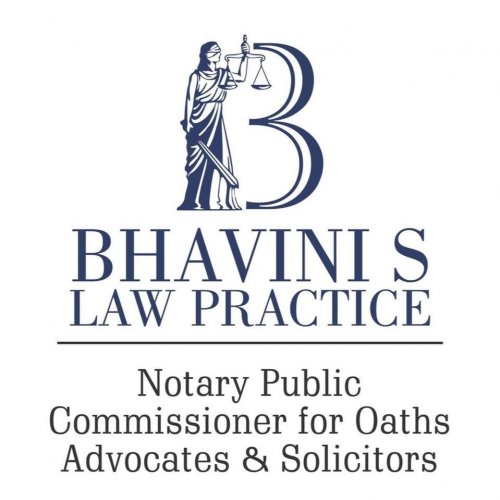Best Estate Planning Lawyers in Tanjong Pagar
Share your needs with us, get contacted by law firms.
Free. Takes 2 min.
List of the best lawyers in Tanjong Pagar, Singapore
About Estate Planning Law in Tanjong Pagar, Singapore
Estate Planning law in Tanjong Pagar, Singapore, involves the creation of strategies and mechanisms to manage an individual's financial affairs during their lifetime and distribute their assets upon death. This process incorporates elements such as wills, trusts, power of attorney, and letters of administration. While the legal aspects of estate planning may seem straightforward, they involve complex legal stipulations and implications, particularly in a multicultural and multilingual society like Singapore.
Why You May Need a Lawyer
You may need a lawyer for estate planning in Tanjong Pagar if you have considerable assets to distribute, a complicated family situation, or if you simply wish to minimize complications for your heirs. A lawyer can provide valuable guidance in ensuring that your wishes are accurately represented and legally binding, thereby preventing potential disputes and litigation. Additionally, a lawyer can also provide advice on tax implications and potential strategies to protect your estate's value.
Local Laws Overview
Local laws related to estate planning in Singapore are governed primarily by the Wills Act, the Trust Companies Act, and the Mental Capacity Act. These laws stipulate how wills should be written and executed, how trusts should be managed, and how decisions should be made if an individual is unable to do so due to mental incapacity. Non-compliance with these laws can result in the invalidation of wills or ineffective estate plans. Therefore, seeking legal advice to understand these laws is essential.
Frequently Asked Questions
What is a will and why is it important?
A will is a legal document that outlines how you wish your assets to be distributed upon your death. Without a will, your assets will be distributed according to Singapore's Intestate Succession Act, which may not accurately reflect your wishes.
What is a trust and when should I consider one?
A trust is a legal arrangement where you transfer assets to a trustee to manage on behalf of beneficiaries. Trusts are often used to protect assets, provide for minors or for those with special needs, or control how and when assets are distributed.
What does an estate planning lawyer do?
An estate planning lawyer provides legal advice and assistance in creating an effective estate plan. This may involve drafting wills, setting up trusts, planning for mental incapacity, and providing advice on potential tax implications.
Can I do my own estate planning?
While it is possible to handle your own estate planning, it is usually not recommended due to the complex legal and financial aspects involved. Mistakes can potentially invalidate your estate plan or lead to costly lawsuits.
What are the costs involved in estate planning?
The costs of estate planning vary based on the complexity of your situation. These costs usually include legal fees for drafting documents and potentially executor or trustee fees. Lawyers often charge flat rates or hourly rates for their services.
Additional Resources
The Ministry of Law and the Public Trustee's Office offer resources and services related to estate planning. The Law Society of Singapore also provides a Lawyer Referral Service which can assist you in finding an experienced estate planning lawyer.
Next Steps
If you require legal assistance in Estate Planning, it's advised to schedule a consultation with a lawyer who specializes in estate planning. Before your appointment, it can be helpful to compile a list of your assets and to consider your specific objectives such as providing for loved ones, charitable giving, or minimizing taxes.
Lawzana helps you find the best lawyers and law firms in Tanjong Pagar through a curated and pre-screened list of qualified legal professionals. Our platform offers rankings and detailed profiles of attorneys and law firms, allowing you to compare based on practice areas, including Estate Planning, experience, and client feedback.
Each profile includes a description of the firm's areas of practice, client reviews, team members and partners, year of establishment, spoken languages, office locations, contact information, social media presence, and any published articles or resources. Most firms on our platform speak English and are experienced in both local and international legal matters.
Get a quote from top-rated law firms in Tanjong Pagar, Singapore — quickly, securely, and without unnecessary hassle.
Disclaimer:
The information provided on this page is for general informational purposes only and does not constitute legal advice. While we strive to ensure the accuracy and relevance of the content, legal information may change over time, and interpretations of the law can vary. You should always consult with a qualified legal professional for advice specific to your situation.
We disclaim all liability for actions taken or not taken based on the content of this page. If you believe any information is incorrect or outdated, please contact us, and we will review and update it where appropriate.








